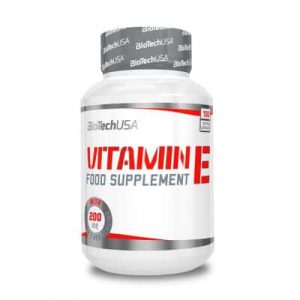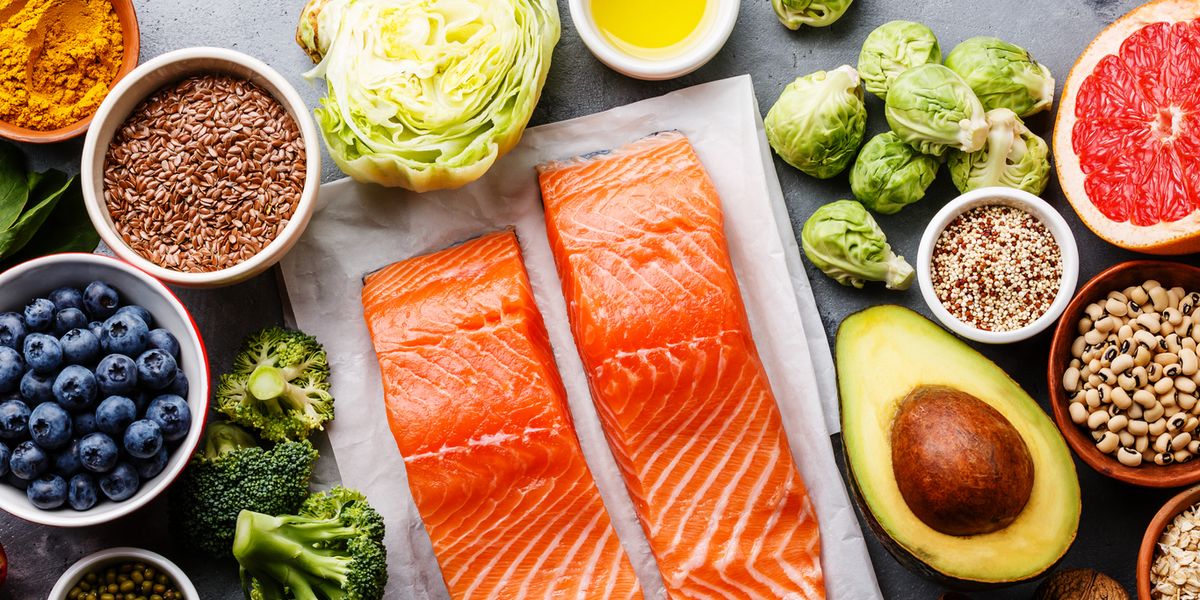Fat-soluble vitamins are absorbed like lipids and are stored in the body, making it more difficult to develop their deficit.
VITAMIN A (RETINOL)
Found mostly in liver, whole milk, egg yolk, and most green, orange, and yellow vegetables. The recommended intake of these vitamins is 700 mg / day for men and 600 mg / day for women. It is transported by chylomicrons, stored in the liver, and excreted through urine, bile, and CO2. Its most important functions are to promote vision, cell growth and differentiation, and the immune system. Its deficit produces night blindness and increased epithelial keratinization. Its toxicity causes liver and bone damage, etc.
VITAMIN D
These vitamins can be synthesized by the body with the help of sunlight. Its recommended intake is 10 mg / day under 25 years and 5 mg / day above 25 years. The sources of its precursors are fatty fish (herring, onion), liver, egg yolk, as well as milk, butter and fortified margarine. It acts as a hormone that controls calcium homeostasis at three levels (intestine, kidney and bone), increasing the intestinal absorption of calcium. Its deficit produces rickets and osteomalacia, that is, bone demineralization.
VITAMIN E (TOCOFEROL)
It finds its main source in PUFAs (polyunsaturated fatty acids) such as seed oils and egg yolks, although it is widely distributed, therefore its deficit is very rare. Anyway, 1 mg / day of tocopherol is required. These vitamins they act as a natural antioxidant for polyunsaturated fatty acids present in the cell membrane. It is absorbed just like fats, by chylomicrons and bile, being distributed in the liver and stored in adipose tissue. It is excreted in feces and urine, and performs an antioxidant function.
VITAMIN K
These vitamins are mainly found in green leafy vegetables, although intestinal bacteria synthesize half of the daily needs, which are 2 g / kg of body weight / day. It is a fundamental vitamin for the blood clotting processes and its deficiency is very rare. Strong antitbiotic treatments attack the inestinal flora, which will affect its synthesis and ease of appearance of deficiencies.
Lack of vitamins can affect athletic performance. However, sports diets (with few exceptions) perfectly cover the vitamin needs of athletes. In any case, athletes must pay special attention to vitamins that regulate metabolic processes (group B) and antioxidants (C, A and E). Vegetarian athletes should monitor their vitamin B12 levels, and female athletes using oral contraceptives should monitor their vitamin B6 levels.
Vitamin supplements should always be consumed under medical supervision and usually carry amounts greater than the RDA, they are applicable to the general population, so the maximum tolerable dose must be controlled to determine the correct dose.

In summary, vitamins are essential organic substances in metabolic processes, they do not provide energy, but without them the body is not able to take advantage of the constructive and energetic elements supplied by food.
Vitamins must be provided through food, since the body cannot synthesize them. An exception is vitamin D, which can be formed in the skin with the exposure of our body to the sun and vitamins K, B1, B12 and folic acid are formed in small amounts in intestinal fiber.




